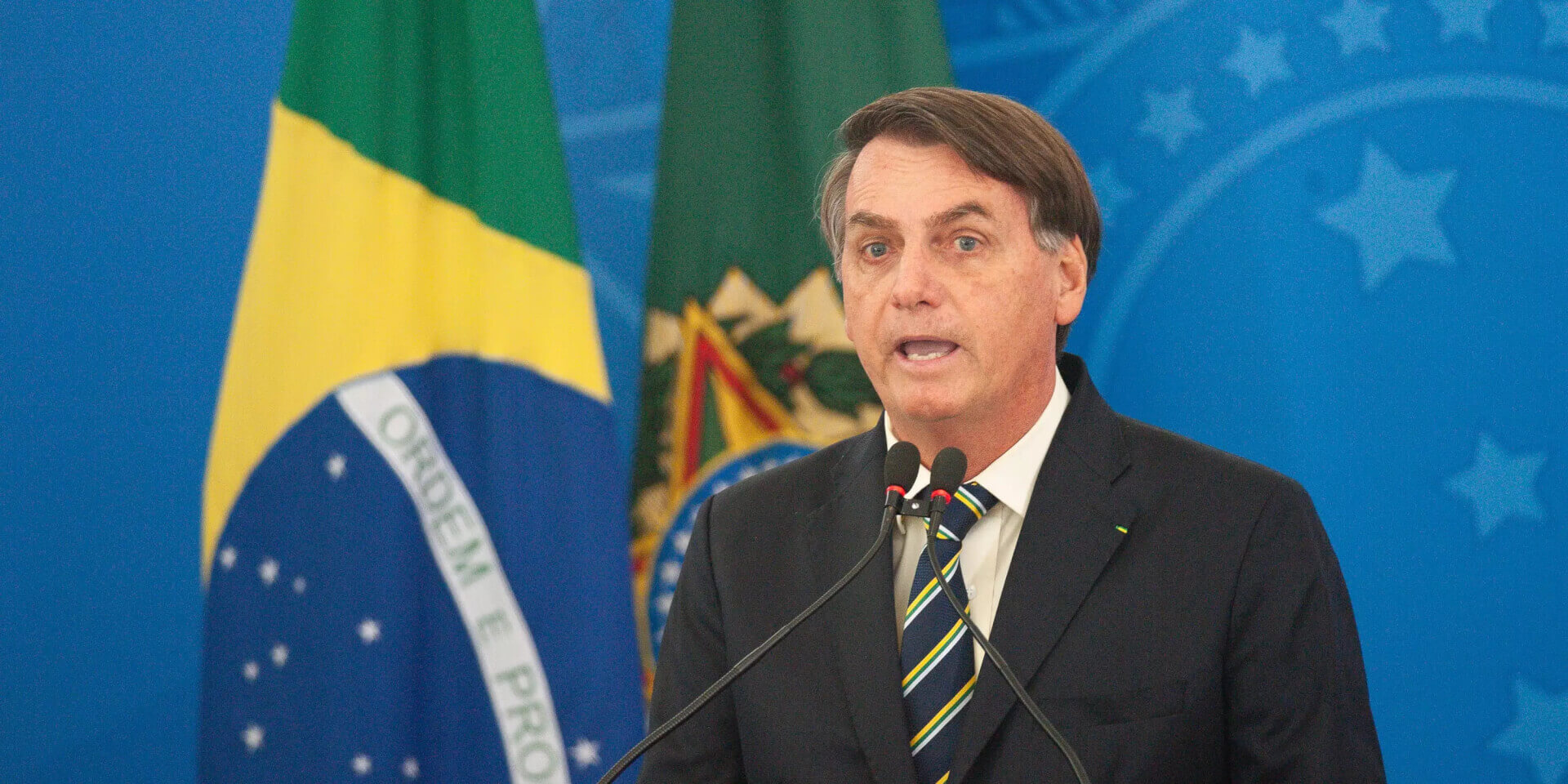Brazilian President Jair Bolsonaro participated in yet another anti-lockdown protest this weekend, delivering a speech to thousands of demonstrators gathered outside the Presidential Palace of Planalto in Brasilia. He once again railed against state governors, saying they were “irresponsible” and “destroying jobs”.
Bolsonaro’s approach to the coronavirus–wherein he has called it a “little flu”, and, by his own admission, prioritized the economy over health–has drawn severe criticism from various quarters of the government.
Earlier this month, Health Minister Luiz Henrique Mandetta was sacked after disagreeing with the president over the need for social distancing to contain the spread of the coronavirus. Bolsonaro said, “Mandetta's vision was that of health, of life. Mine is more than life, it includes the economy and jobs.”
Last week, Brazil’s Justice and Public Security Minister, Sergio Moro, resigned due to “political interference” and a lack of “autonomy” in the federal police after federal police chief Mauricio Valeixo was fired. Moro accused Bolsonaro of “breaking the promise of a carte blanche”. Bolsonaro sacked Valeixo as he wanted someone with whom he had “personal contact, whom he could call, ask for information, intelligence reports”. An anti-corruption judge also resigned on the same day just after Moro resigned.
In fact, Bolsonro has long sought to stack the government with close allies and friends. Last week, the Supreme Court forced the President to withdraw the name of family friend Alexandre Ramagem, whom Bolsonaro had nominated to run the federal police. Justice Alexandre de Moraes said it would give the President undue influence over law enforcement. The Supreme Court also ordered an investigation into Bolsonaro’s alleged interference in police investigations for political gain.
Many of Bolsonaro’s supporters have stood behind him and on Sunday called for the Supreme Court and Congress to be shut down to allow for a return to a more authoritarian style of governance, like that seen in the military dictatorship that ruled over Brazil from 1964-1985. Bolsonaro, a former army captain, has repeatedly celebrated and defended the previous military regime in spite of its numerous human rights abuses.
This past weekend, Bolsonaro said, “We have the armed forces at the people's side: the side of order, democracy, liberty.” He added, “Enough interference. We're not allowing any more interference. Our patience is over.” While this does not amount to calling for a military takeover, his explicit support for measures to disempower the Supreme Court and Congress has strong anti-democratic undertones.
If the Supreme Court approves a trial against Bolsonaro, then the lower house would then have to approve his indictment. However, given that the lower house is dominated by Bolsonaro supporters, this is unlikely. In fact, the head of the lower house dismissed calls for an impeachment, saying that the priority right now is the pandemic.
However, while the lower house might say that the coronavirus is the priority, the President’s actions say otherwise. Considering the high-profile sackings and resignations, and the fact that certain Brazilian generals have come out and said that the President is wrong and that they would not support a coup, Bolsonaro’s government is coming under an increasing shroud of suspicion. As the number of COVID-19 cases in the country passes 100,000 and the death toll crosses the 7,000 mark, Bolsonaro is losing popularity among the public and quickly losing allies in the government. Some experts suggest that a lack of testing across the country means that these numbers could be as much as 12 or 15 times higher than what is being reported. Once Brazil emerges from the ruins of this crisis, it remains to be seen whether these events will have irreparably tarnished the legitimacy of Bolsonaro’s government.
Brazilian President Leads Yet Another Anti-Lockdown Protest
Bolsonaro once again called for the economy to be reopened.
May 5, 2020

IMAGE SOURCE: ANDRESSA ANHOLETE / GETTY IMAGESBrazilian President Jair Bolsonaro
